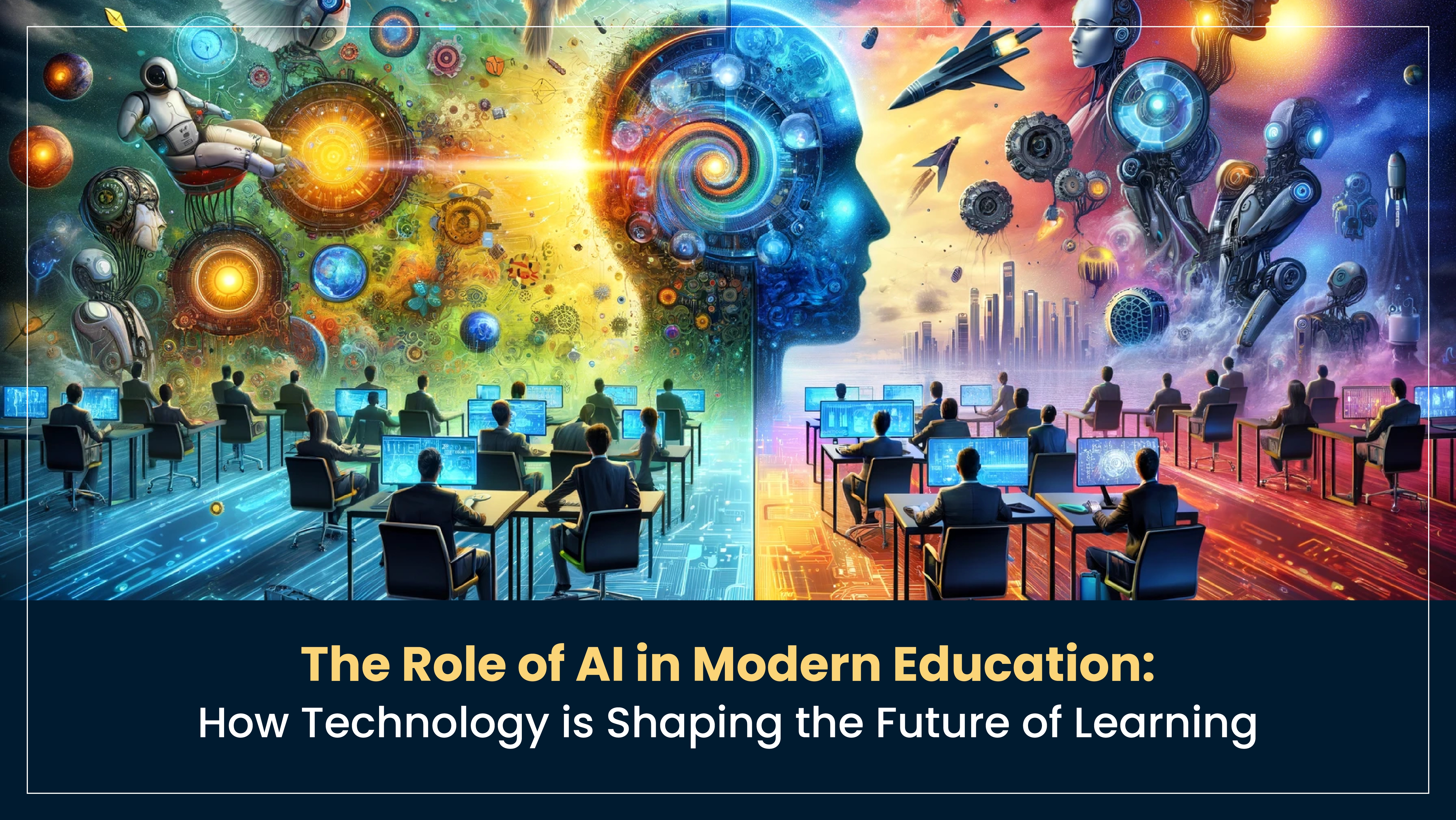Artificial intelligence (AI) is rapidly transforming various industries, and education is no exception. The integration of AI in education is reshaping the way students learn, how teachers deliver lessons, and how schools manage day-to-day operations. As we move further into the digital age, the role of AI in learning continues to grow, offering personalised learning experiences, smarter content, and more efficient systems.
Personalisation through AI
One of the most significant impacts of AI technology in schools is its ability to personalise learning for individual students. AI systems can analyse a student’s learning style, pace, and strengths, then create tailored content that caters specifically to their needs. This approach not only helps slower learners catch up but also ensures that advanced students remain engaged by pushing them further.
For example, AI-powered tools assess a student’s performance in real-time, identifying areas where they struggle. By offering tailored exercises, explanations, or multimedia resources, these AI tools for learning ensure that each student receives the attention and resources they need to succeed. This is a game-changer in the future of education with AI, as it can significantly reduce the dropout rate and improve overall student satisfaction.
Enhancing Teacher Efficiency
While AI is not here to replace teachers, it is undoubtedly enhancing their roles. By automating administrative tasks such as grading, tracking student progress, and scheduling, AI frees up valuable time for educators. Teachers can then focus on more creative and interactive aspects of teaching, allowing for deeper engagement with students. The impact of artificial intelligence in classrooms extends beyond academics, enabling teachers to spend more time mentoring and guiding students on a personal level.
AI also aids in curriculum design. By analysing vast amounts of educational data, AI helps educators identify what works and what doesn’t. This data-driven approach ensures that curricula remain dynamic and up-to-date with the latest educational trends, benefiting both students and teachers alike.
AI as a Tool for Lifelong Learning
In a fast-paced world where skills become obsolete quickly, AI tools for learning play an essential role in continuous education. Companies are leveraging AI to create platforms that not only educate but also adapt over time. These platforms cater to learners of all ages, offering personalised courses, assessments, and feedback mechanisms. The combination of technology and education ensures that learning is no longer confined to the classroom but is an ongoing process accessible to anyone, anywhere.
Moreover, AI-powered systems can predict future job trends and recommend specific learning paths to students based on market demands. This forward-thinking application of AI ensures that students are always learning skills relevant to their future careers, further demonstrating how AI is changing education.
Bridging the Gap: AI in Schools
Integrating AI technology in schools also addresses gaps in educational access. Virtual classrooms, AI tutoring systems, and intelligent content delivery platforms make education accessible to students in remote or underserved areas. Through AI, even those without access to top-tier schools can receive a high-quality education. This democratisation of learning is one of the key highlights of edtech and AI advancements in recent years.
AI-driven platforms are also inclusive, catering to students with disabilities by offering customised learning tools that suit their needs. Whether it’s voice-activated learning for visually impaired students or adaptive tests for students with learning disabilities, AI ensures that no student is left behind.
The Future of Education with AI
As we look ahead, the future of education with AI promises even more transformative changes. From virtual reality classrooms to AI-driven tutors, the possibilities are endless. Schools will increasingly rely on AI to enhance student learning and streamline administrative tasks, making educational institutions more efficient. The key challenge lies in ensuring that AI complements human intelligence rather than replaces it, creating a balanced and enriched learning environment.
Conclusion
The impact of artificial intelligence in classrooms is undeniable. From personalised learning to enhanced teacher efficiency, the role of AI in learning is paving the way for a brighter, more accessible future. Narayana leverages AI to enhance education by integrating GPT-4O for instant academic support through a chatbot and is testing AI-driven tools to generate lesson plans and evaluate handwritten answers. These innovations streamline teaching and offer students immediate, constructive feedback. Narayana recognises that as educational technology evolves, AI continues to play a pivotal role in shaping the education landscape and the dreams of many students, because at Narayana, your dreams are our dreams.


Stay connected, stay informed, and thrive with Narayana Educational Institutions!
